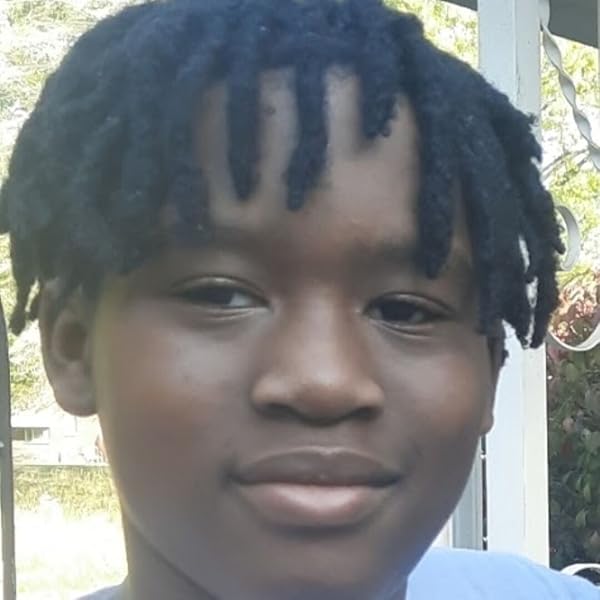A Mother's Nightmare: The Unimaginable Loss of Her Son 2800c
She heard it — a sound so sharp, so final, that it would haunt her for the rest of her life. A single crack, a noise that shattered her reality, a noise that stole her world away. In an instant, everything changed. Her 14-year-old son, who had been playing video games in the comfort of his room, was suddenly the victim of a senseless tragedy.
The bullet came through the window, an unseen assailant that took away the life of a boy who had so much ahead of him. One moment, he was immersed in his game, laughing, lost in the world of his childhood. The next, he was lying on the floor, blood pooling beneath him as life slipped away with every beat of his heart.
She ran to him, heart pounding, panic overtaking her every thought. "No, no, no," she screamed, her voice raw, desperate. His name echoed in her mind as she tried to stop the bleeding, pressing her hands against the wound, praying for a miracle that would never come. But as she watched her son’s chest rise one final time, and then fall still, she knew. It was over. Her boy was gone.

The shock, the terror, and the helplessness crashed over her like a tidal wave. There was nothing she could do. She had failed him. And in that moment, she wished it had been her instead. Why him? Why her son? What had he done to deserve this? The questions echoed in her mind, unanswered, impossible to answer.
Now, every night is unbearable. She closes her eyes, and his face is there, burned into her memory. His shock, his fear, the blood. She sees it all, every detail, as if it happened just moments ago. The pain is constant, a raw ache in her chest that never dulls, never fades. It is a wound that can never heal, a scar that will forever mark her soul.

She says she’s broken, and in many ways, she is. The woman she once was has been forever altered by the loss of her child. The grief has consumed her, and the anger has taken root, festering deep within. She is angry at the world, angry at the senselessness of it all. She is disgusted by the violence that robbed her of the one person who mattered most. No mother should ever have to experience this kind of pain. There are no words for what she feels. It is a silence so loud, it drowns out everything else.
And then there’s the guilt. The relentless, gnawing guilt that she couldn’t protect him, that she couldn’t keep him safe. Every time she closes her eyes, she relives the moment, over and over again. If only she had been there sooner, if only she had been able to stop it. But there’s no undoing what has been done, no way to bring her son back.

Sometimes, in the quiet of the night, she whispers to God, asking why. Why did this happen? Why her son, just 14, with so much life still to live? She doesn’t know if she’ll ever get an answer. Maybe there is no answer, no reason that could ever make sense of such an unthinkable loss. But the question remains, haunting her in the stillness.
Her other two sons are shattered too. They were just a year apart, best friends who did everything together. They shared everything — their games, their dreams, their lives. Now, there’s a gap between them, an emptiness that can never be filled. The house is quieter now, the laughter that once filled it now replaced by a painful silence. There’s an empty chair at the table, a reminder that their world has been ripped apart. And every time they sit down to eat, every time they gather together, that chair is a stark, painful reminder of the one who’s gone.

Her family is fractured, broken by the weight of their grief. The love they shared is still there, but it’s buried under the rubble of loss. They try to hold each other together, to be strong for each other, but the cracks are visible, the pain too deep. They don’t know how to heal, and they don’t know if they ever will.
But even in the midst of this unimaginable tragedy, there is a glimmer of something else — something that refuses to be extinguished, even by the darkest of nights. It’s love. Love for a son who was taken too soon, love for a boy who deserved so much more. It’s the kind of love that never dies, even in death. And though it feels like the world has ended, though the pain feels endless, the love remains.

In the days that follow, she tries to carry on, though it feels impossible. The world moves on, but for her, time has stopped. Every step forward feels like an eternity. But somehow, she gets through each day, with the memory of her son by her side. She holds onto that love, that bond that can never be broken, no matter how much time passes.

Her son may be gone, but he will never be forgotten. His life, though tragically short, was full of love, of joy, and of promise. And even in the face of overwhelming loss, his memory will continue to live on in the hearts of those who loved him. The pain may never go away, but the love will endure, a reminder that even in the darkest of times, there is light.
As a mother, she will never stop fighting for her son’s memory. She will never stop asking why, never stop feeling the ache of his absence. But she will also carry his love, his spirit, and the precious memories of the time they had together. And though her world will never be the same, she will continue to walk forward, holding onto the love that was stolen from her too soon.
The Silent Embrace — Bergen-Belsen, 1945 918


When British troops entered Bergen-Belsen in April 1945, they stepped into a nightmare few could comprehend. The stench of death hung in the air. Thousands of skeletal figures staggered in the mud, barely alive. Piles of bodies lay unburied, mute testimony to months of starvation, disease, and cruelty. It was not just a concentration camp they had liberated, but a landscape of human devastation.
Amid this chaos of despair, one moment unfolded that defied the silence of horror. Two survivors, skeletal and hollow-eyed, caught sight of each other. Recognition flickered across faces once nearly erased by suffering. They did not have the strength to run, nor even the voice to call out. All they could do was move slowly, trembling, toward one another.
When they finally reached each other, they collapsed into an embrace.
It was not a hug of celebration, nor the casual greeting of old friends. It was something deeper, heavier. Their arms wrapped around frail bodies, skin and bone pressing together as if to hold back the abyss. They were too weak to speak. Their silence became the language.

A soldier who witnessed the moment later wrote, “Their silence spoke louder than a thousand words: it was the language of survival.” In that embrace lived all the emotions words could not capture — the relief of being alive, the grief for all that had been lost, the fragile spark of hope that still managed to survive.
The liberation of Bergen-Belsen freed thousands, but freedom could not erase the scars carved into flesh and memory. Typhus, dysentery, and starvation claimed many even after the gates were opened. Yet in that embrace was the undeniable affirmation of life.
It was an image of resilience. Two human beings, reduced to their barest existence, still able to reach out and connect. In a place designed to strip people of their humanity, that embrace was rebellion. It was defiance against dehumanization. It was proof that love, recognition, and solidarity could not be extinguished.
For the soldiers who saw it, the gesture became unforgettable. They had entered expecting to free prisoners; they discovered, instead, survivors teaching them what endurance truly meant.
The silent embrace became more than just a fleeting moment on the grounds of Bergen-Belsen. It became a symbol. Survivors have often said that liberation was not just about the gates being opened, but about rediscovering the touch of another human being — being held, being seen, being reminded that they were not alone.

In those skeletal arms lay the promise of rebuilding. Though their bodies were broken, their humanity was not. That one gesture told the story of millions: of suffering endured, of families torn apart, of friendships clung to in the darkest hours.
It also told the story of survival. Not survival in the physical sense alone, but in the survival of compassion, of love, of the simple need to be close to another. In the silence of that embrace, there was testimony stronger than any spoken word.
Today, as we reflect on Bergen-Belsen and all camps like it, the silent embrace remains a lesson. It reminds us that even in the face of unimaginable cruelty, the human spirit is not extinguished. It can be bruised, battered, nearly destroyed — but it endures.
That endurance matters. Because history is not just about the cruelty of perpetrators, but about the resilience of those who endured. Their silence tells us something essential: that survival is not only physical, but emotional, spiritual, communal.
The embrace on that day in 1945 is still speaking to us. It whispers of relief, of sorrow, of hope. It tells us that in the ashes of horror, humanity can still rise. It shows us that sometimes, the deepest truths of history are not recorded in speeches or documents, but in gestures — a hand held, a tear shared, an embrace given.
And so we remember Bergen-Belsen not only for the horror it represented, but also for the humanity that managed to survive there. The embrace remains a symbol of what cannot be destroyed: the bond between human beings.
It is said that when words fail, gestures speak. At Bergen-Belsen, in 1945, the silent embrace of two survivors spoke for all those who could not.
And in that silence, we still hear the voice of resilience, the whisper of hope, and the unyielding truth that the human spirit never fades. 🕊️





